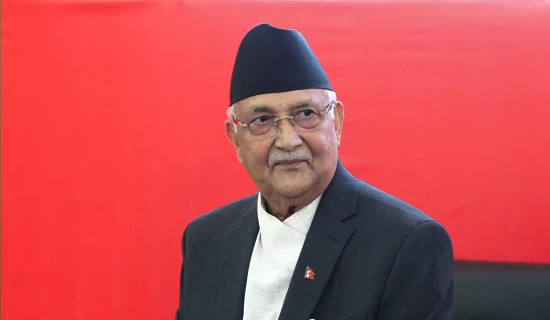- Saturday, 4 May 2024
Expedite Power Trade
With Nepal adopting free market economy since early 1990s, the private sector has played an important role in the economic development. The constitution has recognised the public, private and cooperatives as the key pillars of economy. Though the privatisation of public enterprises has been disastrous in Nepal, there has been a phenomenal growth of private sector, contributing to around 81.55 per cent of Gross Domestic Product (GDP). No doubt, the private businesses and companies are motivated by an urge to make profits. But, at the same time, it generates jobs, enhances efficiency in the delivery of goods and services, spurs technological innovations and industrial growth, and contributes to national development. The country has witnessed the rise of business houses and groups in diverse fields of economy, thanks to enactment of conducive Acts, regulations and directives aimed at encouraging the private sector.
The private sector has been involved in producing electricity in different parts of the country. Nepal holds immense potential for the hydropower development requiring huge investment, advanced technology and support from administrative and general public. It is a positive thing that power generation has taken a good momentum in the last one decade. The installed capacity of hydropower projects has now reached about 3,000 MW and the private energy producers account for two-thirds of it. Now the independent power producers have been demanding that they be allowed to trade power inside and outside the country. It is rational for the private sector to participate in the electricity trading in view of its export to India since last year and increasing global and regional trend to replace fossil fuel with the clean energy. Independent power producers have established five trading companies but in the absence of law, they are not able to enter the power purchasing agreement (PPA) with the power developers.
In order to solve the legal knots, the government has approved a new Electricity Bill and tabled it in the Federal Parliament. It is under discussion in the Infrastructure Development Committee of the House of Representatives (HoR). As the winter session of the parliament was recently prorogued by just endorsing three bills, it is uncertain when the Electricity Bill will receive the House's nod, given the opposition party disrupting its proceedings. The proposed Bill ensures the rights of private companies to purchase and sell electricity inside and outside the country while providing access to the transmission infrastructure. It has floated the concept of multiple buyers and multiple sellers, which allow the consumers to consume electricity from the distributors of their choice. However, it obliges the government and private sector to export electricity only after meeting the domestic demand.
The private sector is set to contribute around 10,000 MW of power to the national grid in the 10 years. According to a news report published in this daily, the sector holds license for hydropower projects with capacity of 34,000 MW. Projects with a capacity of around 2,200 MW are in generation and projects having a capacity of 3,200 MW are now under construction phase. Likewise, hydropower projects with a capacity of 3,400 MW are in the stage of financial management with completion of Power Purchase Agreement and projects with capacity of 10,000 MW are waiting for PPA. The involvement of the private sector in power trade is expected to boost production and explore new market. The most important point is that consumers should get electricity in competitive prices. The government and political parties should work to pass the Bill as early as possible.

















